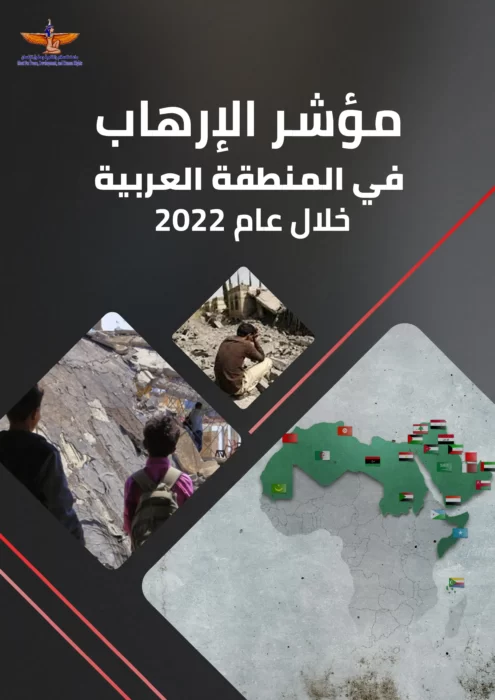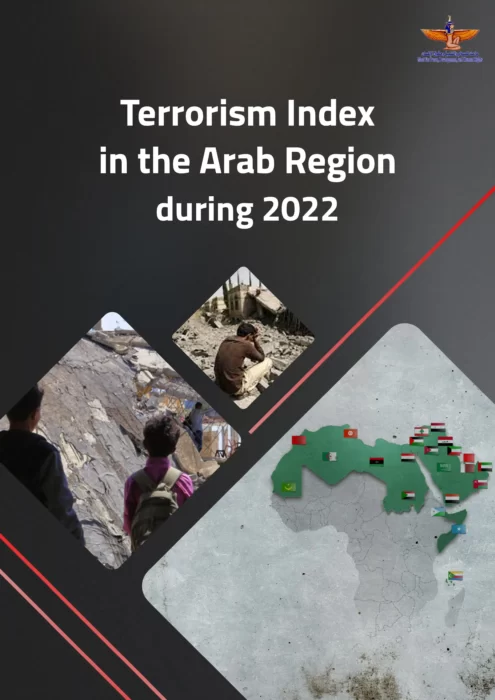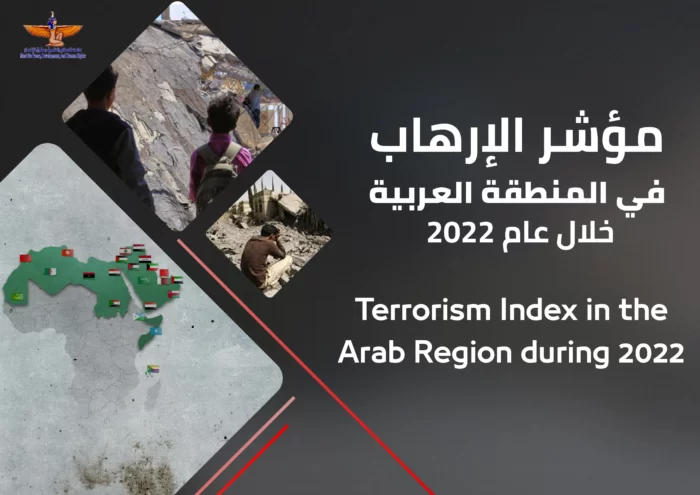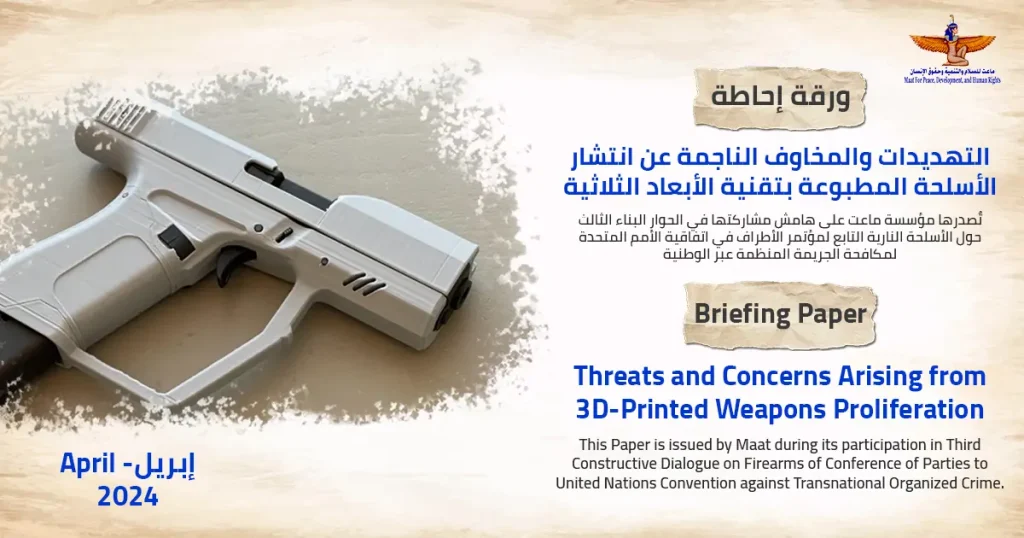In its annual report “Terrorism Index in the Arab Region in 2022”, Maat Monitors 577 Terrorist Operations that Killed 1,566 People
Okeil: We recommend strict international oversight of the movement of international funding provided to terrorist groups
Gouda: We demand that terrorist attacks involving drones be included as a terrorist crime
Maat for Peace, Development and Human Rights issued its annual report entitled "Terrorism Index in the Arab Region during 2022", which monitored and analyzed the phenomenon of terrorism in the Arab region over the past year. In its Report, Maat provided a thorough analysis of the impact of the variables that have occurred on terrorism and dismantling it in a way that enables drawing unbiased and logical conclusions about terrorism, and thus being able to predict the challenges that stand as a stumbling block against confronting terrorism.
The Report indicated that 2022 witnessed a decrease in terrorist operations in the Arab region by about 577, compared to 904 terrorist operations in 2021, in which 1,566 people were killed, and 1,522 others were injured. The countries of armed conflict in the Arab region, namely: Somalia, Syria, Iraq and Yemen are the most vulnerable to terrorist operations, as terrorist groups claimed responsibility for 499 terrorist operations in the four countries.
Somalia came at the forefront of countries in terms of terrorist operations in the Arab region in 2022, with 170 terrorist operations, and topped the index of deaths and injuries, with about 660 dead. Iraq ranked second in the index, with 151 terrorist operations, followed by Syria with more than 119 terrorist operations, then Yemen came fourth with 59 terrorist operations.
For the Arab countries that were marginally affected by terrorism, such as Libya, Tunisia, Sudan, Saudi Arabia, the Emirates, Algeria, Morocco, and Egypt, the eight countries were affected by about 78 terrorist operations, with 26 terrorist operations took place in the Kingdom of Saudi Arabia, which ranked fifth in the index of terrorist operations in the Arab region, and 22 terrorist operations in the state of Sudan.
.7 Arab countries maintained their record free of terrorism in 2022, which are Qatar, Bahrain, Kuwait, Oman, Mauritania, Comoros, and Palestine.
During its annual Report on the Terrorism Index in the Arab Region, Maat confirmed that despite the significant decrease in the number of terrorist operations in the Arab region in 2022 compared to 2021, terrorist groups in Syria, Iraq, Somalia and Yemen are still able to plan and carry out terrorist operations in the coming years. The political division and lack of unification of security and military institutions serve as an incentive for terrorist groups to recruit new individuals and carry out more terrorist operations, as terrorist groups focused their operations primarily on national armies and security forces, relying on their ability to recruit individuals responsible for manufacturing IEDs.
For his part, Ayman Okeil, an international human rights expert and President of Maat, said that the fragility of the Arab countries engaged in internal conflicts with armed groups, the lack of arms in the hands of the state, the exacerbation of hate speech in times of crises and turmoil, and the poor political consensus in a group of Arab countries that are going through stumbling transitional periods, are all Reasons that enabled terrorist groups in the Arab region, especially Daesh, Al-Qaeda, Al-Shabaab, and the Houthis, to exploit these factors in order to adapt to their previous losses and the ability to stand firm, to pose a real threat to national security in Arab countries.
Okeil recommended the need to impose strict international control over the international funding provided to terrorist groups that enables them to implement their subversive plans, in addition to imposing strict international control over the movement of weapons and equipment used by these organizations in carrying out their terrorist acts against civilians and military personnel in Arab countries.
Abdul Latif Gouda, the manager of the file on combating hate speech and violent extremism at Maat, highlighted the importance of considering amending the third paragraph of Article 1 of the Arab Convention For The Suppression Of Terrorism to include terrorist attacks in which drones are used as a terrorist crime, and urged countries that have not yet ratified the Arab Convention to complete ratification procedures and deposit ratification documents with the General Secretariat of the League of Arab States.
Finally, the "Terrorism Index in the Arab Region 2022" report presented a set of recommendations, including the need not to use measures to prevent and confront terrorism as a tool to silence the opposition and impose restrictions on civil society and human rights defenders, and to request support from the United Nations Office on Drugs and Crime in the field of building Capabilities regarding financial investigations, in addition to strengthening the judicial system in Arab conflict areas, which contributes to combating the spread of impunity and strengthening the rule of law.

 |
 |











